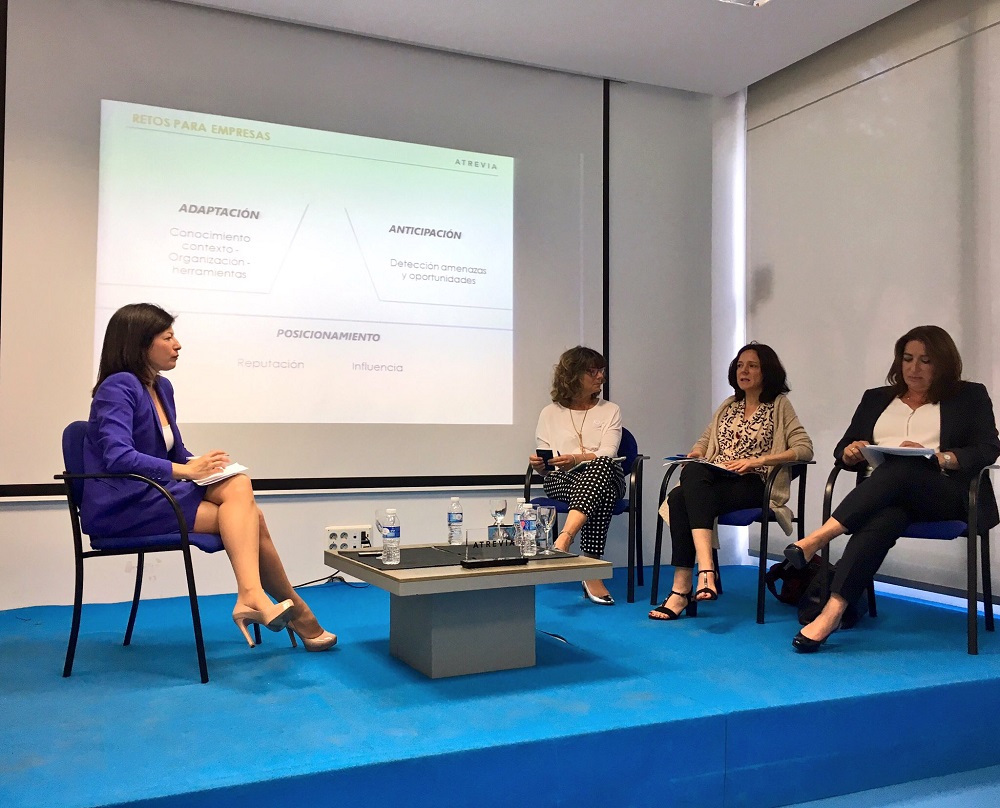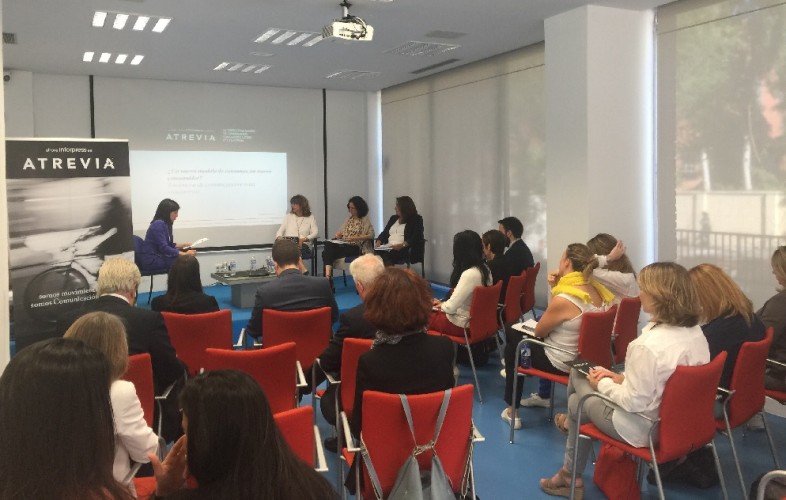
For several years, there have been great talks of social change driven largely by the development of information technology. In this context, you may wonder: how and what consumers have changed and how does it affect these companies? Has the relationship changed between both parties? What are companies doing to adapt to this new reality?
These and more questions were debated in the breakfast conference titled A new consumption model, a new communication model moderated by Yolanda Román, director of Public Affairs at ATREVIA. In this meeting, views and analysis of different perspectives were shared (academic, business and associative) on the changes in forms of consumption, the profile of consumers and the consequences in their relationship with companies. We heard the opinions from three recognized professionals in these environments: Belén Barreiro, director of MyWord and ex-president of CIS (Center for Sociological Research); Ana Isabel Ceballo, president of the General Consumers Association (ASGECO); Clara Medina, director of Relations with Consumer Associations at Mercadona.
Yolanda Román introduced the debate defining the current context in which this new consumer is born. They live in more connected, urban and international societies. Due to this, a new alternative and immediate consumption model emerged which responds to the needs of a more demanding and committed consumer. This model raises three fundamental challenges to companies: adaptation, anticipation and positioning before this new reality.
Related to this theme, Belén Barreiro spoke to us on the concept of the “rebel consumer”, which emerged after the curse of the crisis and now it is 1 out of every 4 consumers today, according to different indicators. This is identified by their aversion to market economics, opposite the historic phenomenon that the Spanish consumer used to always show towards large companies. In this sense, she stated that all brands have been affected by this phenomenon, although there are notable differences according to the sector.
Clara Medina, for her part, stated that “the new consumer not only has more information, but also they share it by being more participative. All this affects their purchasing decisions; the change is constant and evermore quicker. It is for this that every decision should be with and for the consumer, which likewise represents an opportunity for the improvement of brands”.
Finally, Ana Isabel Ceballo supported the associative view in the debate, affirming that “there is not only one type of consumer but if we have to define a “new consumer model”, this would be defined for the large quantity of information at their disposition and their greater awareness”. The new consumer, she explained “looks to the things related to them in a common space and from there the associative principles are born”. She highlighted that the moment in which the brand lives through in a collaborative economy is currently regulated at a European level.
These and more reflections were shared by the speakers in another edition of ATREVIA’s breakfast conferences. It is a space of debate and reflection on the most relative current aspects.
